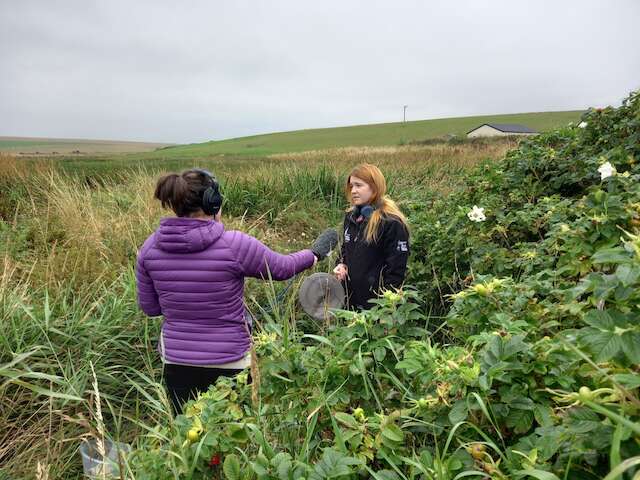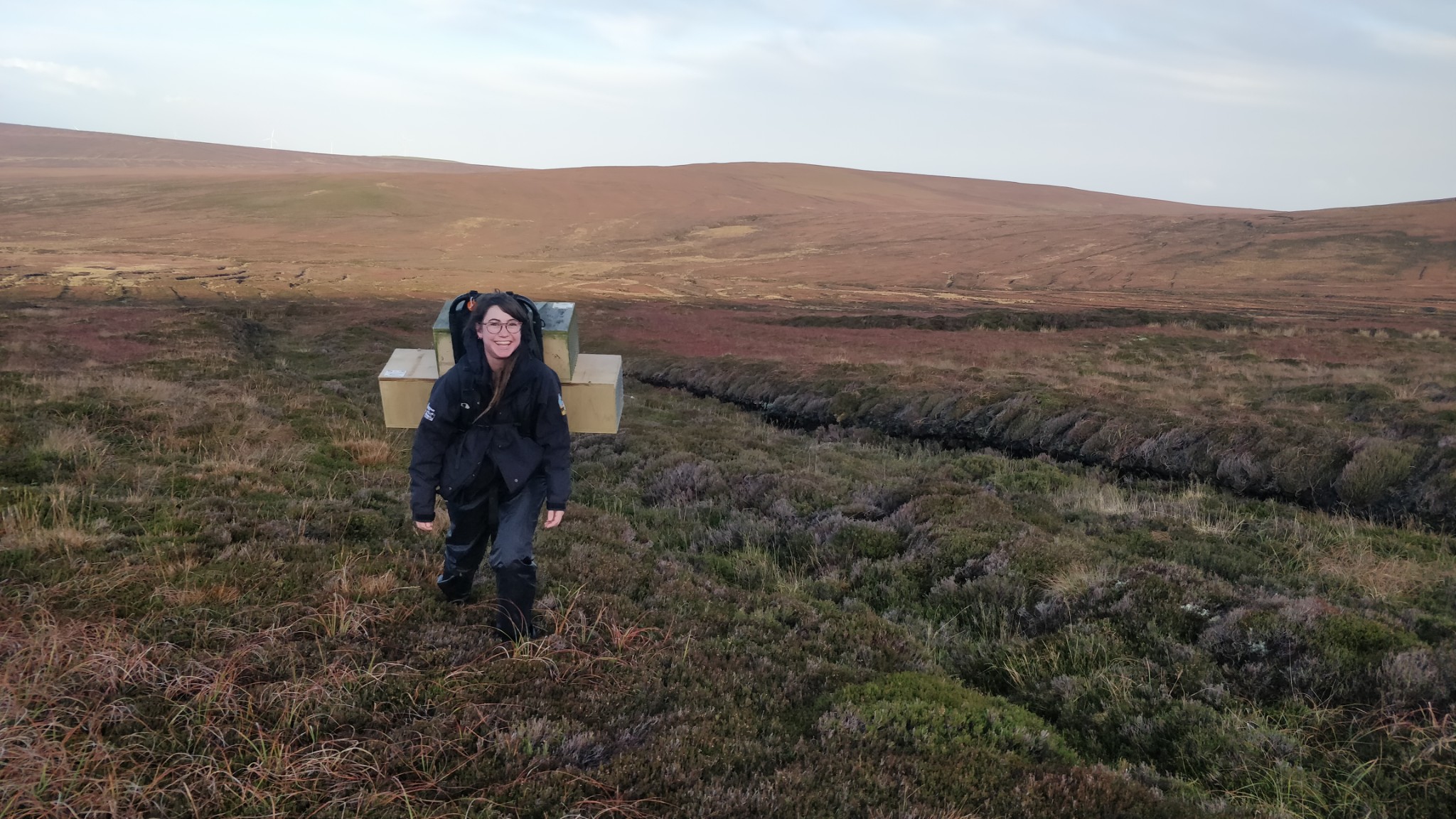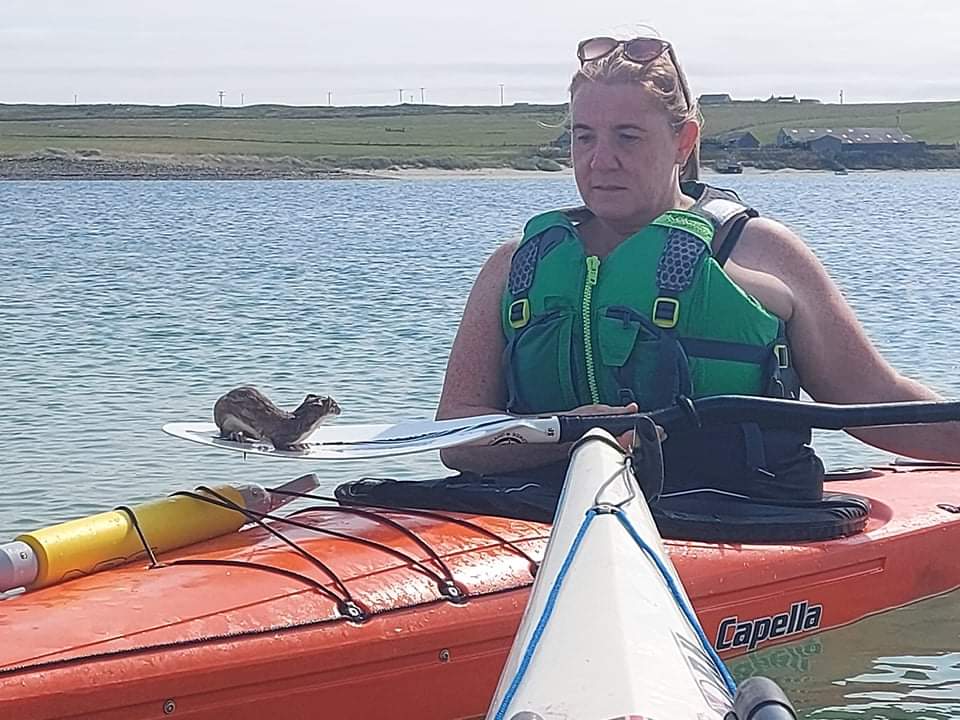Welcome 2022!
We have a lot of hope for 2022 and by the end of January we have caught over 2,700 stoats since August 2019. Nearly 800 landowners support us and have provided access to their land whether for placing trap boxes, monitoring wildlife or using Europe’s first detection dogs to find signs of stoats. So, the landscape is covered with more than 6,200 wooden trap boxes out there containing around 10,800 traps.
Orkney's NEW wildlife youth forum launched

The wildlife youth forum offers Orkney’s young folk, between 16 and 30 years of age, the chance to have their say and be actively involved in wildlife conservation in Orkney and to make a real difference to the environment outside their own front doors. Young adults joining the group will also have an opportunity to acquire valuable insight into a major conservation project to provide valuable experience for anyone keen in a career in conservation in the company of others sharing similar passions.
Youth forum activities will be determined by the members and could include opportunities to take part in practical conservation in collaboration with us. The youth forum will open to everyone whatever their background and level of experience. It will also cater to a variety of interests so whether a passion is conservation, field work, research, or just looking for more experience in working with the community – there will be a role for everyone.
To quote George Benson’s song ‘I believe that children are our future, teach them well and let them find a way...’ And that, in a lyrical nutshell, is why we have started Orkney’s wildlife youth forum. As children move into young adulthood we wanted to offer something to support them which will continue their passion for nature in a practical and meaningful way.
We can see that young people, passionate about nature, are the future guardians of our environment - particularly after the standout presence at last year’s COP26 in Glasgow. The younger generation will be the custodians of the environment whether they grow up to be farmers, work in hospitality or chose a career in conservation so we want to help them harness that zeal. For Orkney’s wildlife to have a future then we need the next generations of naturalists, whether professional or amateur, to have the chance to make a real contribution to help protect the precious Orkney environment. A sustainable future for Orkney’s wildlife depends on our young people getting involved and building on the legacy our field teams leave after they have moved on at the eradication’s end in 2024.
You can find out more about the forum at a special practical 'taster' event on Saturday 25 February. To regisiter for the event and to find out more on how to get hands-on protecting Orkney’s native wildlife for the future email Holly at [email protected].
Welcome to our new trappers

We are delighted to welcome new members to the eradication team swelling the numbers to 14 that cover a massive 167 square miles of eradication trapping network. Hannah Findlay has already been out placing traps in the fabulous Orkney landscape. Tough going but stunning, was her exhausted verdict at the end of her first month. Peter Breivik also joined us during the stormy start to 2022. We wish them well and many dry days in the field.
Working with the Orkney islands within a stoat's reach

Biosecurity is the practice of protecting places from the threats to wildlife posed by introducing new diseases or types of plants or animals that do not naturally occur there. We have been working with island communities since 2018 to put in place biosecurity measures to protect the isles from the risk of non-native invasive stoats arriving, establishing and subsequently threatening native wildlife.
The close working relationship between the island communities and our project gives us a fair degree of confidence that the islands remain stoat-free, despite being within the range of a swimming stoat. Stoats are notoriously difficult to detect, particularly when they are not many of them and if left unchecked the population can boom. So we must remain vigilant - as stoats have been known to swim in open water up to three kilometres.
Communities on many of the high-risk Orkney islands close to Orkney’s Mainland have been finalising their community-led plans on how they will help prevent the spread of stoats to their shores and what to do if one arrives. Eynhallow, Flotta, Hoy and Walls and Graemsay have already confirmed their biosecurity plans as a critical legacy that will continue beyond the project finishes toward the end of 2024. Rousay residents have an opportunity to meet one of our conservation dogs and their handler in a free drop-in session on Friday 25 February from midday until 1:30pm following last month's online meeting to discuss their biosecurity plan. Everyone is welcome to the Rousay Hostel at Trumland Farm. Find out more how the dog team look for signs of stoats and help confirm the island is stoat-free as well as help the efforts to prevent the spread of stoats from Orkney’s Mainland.
Until our next issue, you can keep up with our progress via our Facebook page and our monthly column in the Orcadian newspaper. Any questions please do feel free to contact us.

